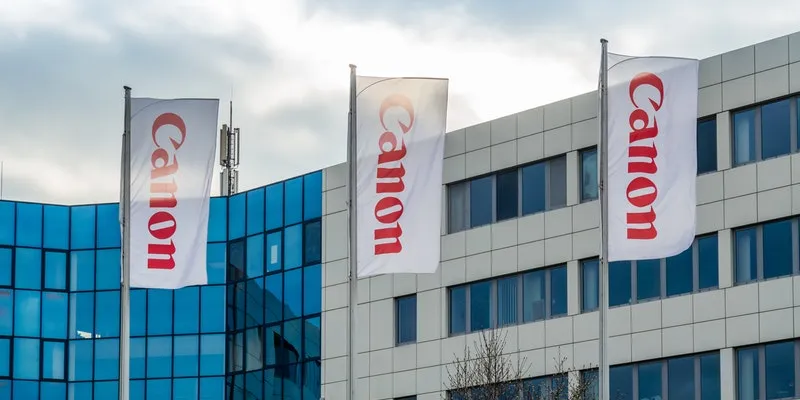To be a Learning Organisation - a vision worth pursuing
Most organisations take pride in calling themselves centres of learning. They set up separate departments called Training and Development (T&D) that are expected to nurture learning throughout the organization, they allocate budgets and earmark number of training mandays, and they pay lip service to learning with full conviction. Yet attrition happens because people are bored and boredom is because learning has saturated. Can organisations revisit their notion of learning?

Learning should be a shared behaviour
“We are convinced about your product”, said the investor. “We have understood that your customers love your product and your market is huge. But before we invest $500 million in your company, we want to be convinced that you have the capability to lead your team to build the organisation that will be both profitable and sustainable for many years to come. We want to be convinced that you have it in you to transition from entrepreneur to leader.
So this is how we will establish your leadership qualities. We will narrate a story and at the end of the story, we will ask you a question pertaining to the story. If we like your answer, we will meet again to establish more of your leadership qualities. If we don’t like your answer, we will walk away. Each story will be around a particular theme. Our theme today is learning”.
What is learning in the context of organisations? Stripped of all jargons, it is simply the process of creating something new that, when applied, enhances productivity within the organisation. In other words, it makes the organization ‘better than before’. Learning becomes a part of organisational knowledge only when it becomes shared behavior. When it moves from the realm of the individual to the realm of the collective.
By its very nature therefore, stimulating learning across the organisation not just becomes a cognitive mandate for the leadership team but the necessity for staying relevant drives it. Because without new learning inputs, knowledge becomes stale. Stale writes the epitaph of organisations.
Both the writers feel that learning is highly misunderstood in organisations of today. There seems to be a notion that a curriculum-led calendar creates an armor of relevance. We feel strongly that learning process starts with a well-planned purposeful vision-oriented program into the organisation at all levels. One of us has engaged for many years now asking students in executive programs what the vision of their organisation is. Mind you, most of the students are part of large branded organisations. Yet none of them has ever been able to recall the vision of the organisation that hangs in the company’s reception!
One of the best use cases of this learning mindset is a company that was established in 1934 called Precision Optical Instruments Laboratory in Japan, which we know today as Canon.
The company’s first product was ‘The Kwanon’ camera, a copy of the Leica design, Japan’s first 35 mm focal-plane-shutter camera. From then on it went on to become a category owner in the camera industry.
In the late seventies, Canon realised that Xerox’s patents for plain paper copier (PPC) technology was running out and that opened up a huge opportunity for Canon to enter the photocopier space. Xerox was a very solid market leader with over 500 patents in the PPC technology. It was at best audacious, at worst foolishness for Canon to even aspire to enter this new business.
Like all Japanese companies, Canon too decided to do thorough market research before entering the space. It approached all xerox customers - and they were thousands of them - and asked them if they were happy with Xerox. Everybody said a resounding yes but Canon persisted with its questions. What are you most happy with? Is there anything you wish was better? At some point, one of the secretaries in a large corporation said, you know what, i love my Xerox machine, but the only problem is their size. Our office works out of 15 floors and we have one Xerox copier per floor. All of us secretaries have to queue up at the machine everytime our bosses want something photocopied. I wish we could have desktop photocopiers, like my typewriter, which is for my exclusive use.

Canon changed their strategy right from the outset
Canon listened and produced the world’s first desktop photocopier and in terms of number of machines, they overtook Xerox within three years of launch. And this also paved the way for it to launch printers, projectors scanners and binders.
So Mr Entrepreneur, did Canon ever ask itself, should we be known as a camera company or an office automation company? Did Canon make a conscious decision to be a camera AND an office automation company? Did it ever toy with the idea of EITHER-OR?
Canon cleverly made knowledge and learning a powerful competitive advantage, said the entrepreneur.
They were keenly aware they were in a dynamic market of shifting needs, products and competition. They saw an opportunity and created new knowledge from their learning. They went beyond the predictable processing of the information they had on Xerox’s patents for PPC technology. From inputs on the unwieldy size of the Xerox machines, they gleaned the insight that users preferred desktop photocopiers for their exclusive use. They used this insight to respond quickly, create not just a new product but a brand new personal copier market.
The truth is, it was not a question of whether they should be known as a camera company or an office automation company. Their achievement lay in how they created new knowledge by differently processing the objective information they had.
From the exciting possibility of the mini copier, they looked at how to make it reliable. The learning? Make the photocopier’s copier drum disposable. The next step? Make a low-cost copier drum so that it could be thrown away and replaced. This knowledge brought in new technologies for miniaturisation, weight reduction, and automating the assembly line. From here it was applied to other office automation products – typewriters, word processors, microfilm readers, and laser printers. When knowledge wins so big, it was a no-brainer for Canon to diversify into office automation!
Very well analysed, my friend, smiled the investor. We have a date next week!
How about you readers? How do you execute your role as a knowledge engineer in your organization?
Mail it to us before February 07, 2019 to [email protected]
We will pick one winner, publish that story and you will get a chance to have a free half-hour mentoring session with Nandini Vaidyanathan.







